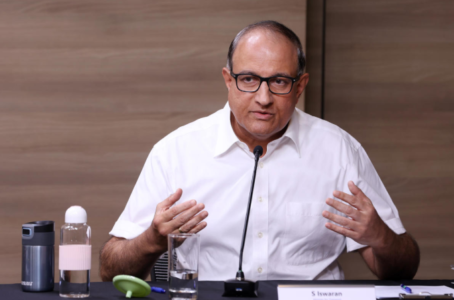Aiming for Sustainable Transformation in Key Sectors
DAVOS, Switzerland: Singapore is stepping up its commitment to combat climate change by joining a global initiative aimed at advancing low-carbon technologies in emissions-heavy sectors such as steel, cement, and chemicals.
The country has become a member of the First Movers Coalition, a public-private partnership announced by US President Joe Biden last November, just ahead of the COP26 World Leaders Summit.
In a media interview during the World Economic Forum in Davos, Transport Minister and Minister-in-charge of Trade Relations, S. Iswaran, emphasized that this initiative aligns with Singapore’s broader efforts to decarbonize its economy.
“Climate action is a global responsibility and a challenge that requires collective effort. While we contribute only 0.1 percent of global greenhouse gas emissions, we are committed to being recognized as a proactive participant in this critical global initiative,” he stated.
Mr. Iswaran highlighted the significance of the Singapore Green Plan, which not only addresses domestic actions but also fosters collaboration with other nations. “We are undertaking a variety of initiatives in partnership with others to maximize our impact,” he said.
One of the unique aspects of the First Movers Coalition is its focus on engaging the private sector, exploring how businesses can collaborate with governments to achieve decarbonization targets.
He further noted that it is essential for Singaporean firms to enhance their sustainability credentials to remain competitive in the global market. “For our enterprises, particularly in sectors like aviation and maritime, participating in the global ecosystem is crucial. We must ensure that our companies maintain their competitive edge through the quality and sustainability of their services,” he remarked.
Keeping Singapore Well Connected
Addressing trade priorities, Mr. Iswaran mentioned that Singapore is actively pursuing various free trade agreements, particularly in emerging areas such as the digital and green economy.
“Our approach will always prioritize a rules-based, open, and inclusive architecture in these agreements,” he explained.
He added that existing trade agreements would be regularly reviewed and updated to adapt to the evolving global economy. “This is an ongoing process, characterized by a steady and purposeful effort to continuously strengthen Singapore’s economic connections worldwide.”








